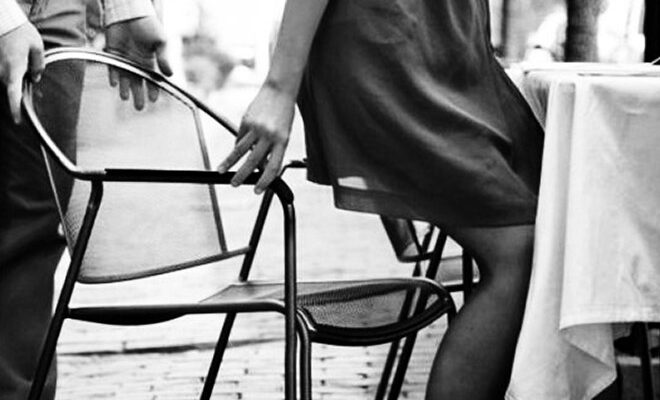Serving in a restaurant can be a thankless task. In just one night, employees have to serve hundreds of people, many of them hungry and some just rude. Waiters have to run for hours from table to kitchen, covering the distance equivalent to a half marathon, all the time, dealing with irritated bosses, unfulfilled orders and much more. To find out what overworked waiters really think of you, we spoke to some of them and wrote this guide to the modern man's restaurant etiquette. I hope you don't have to see some of your habits here.
- History of etiquette
- What does restaurant etiquette mean in the life of a modern man?
- Basic principles of restaurant etiquette
- Manners are the face of a man
- Find out the names
- Remember employees are exhausted
- The waiter is not an unemployed actor
- Don't make numerous changes to the dish
- Don't ask for more salt
- A little knowledge doesn't hurt
- Get out of your comfort zone
- Look in your eyes
- Don't stack your plates
- Maintain Feedback
- Don't delay the waiter
- Tip
- Don't snap your fingers
- Finally
History of etiquette
The story goes that when King Louis XIV's gardener at Versailles discovered that the nobles were trampling flowers while strolling through the garden, he placed signs or 'etiquets' to warn them not to stomp on the grass. But the French nobles of the 16th century were not so obedient, and ultimately the king himself had to insist that no one went beyond the boundaries established by the signs of the gardener.
Over time, the meaning of the word has changed and included other codes of conduct. Until we finally came to what is understood today as etiquette – the rules of conduct are everywhere, from a business meeting to meeting neighbors and relaxing.
What does restaurant etiquette mean in the life of a modern man?
When you look at how social norms have evolved in recent years, it's no surprise that the traditional model of 'gentleness' looks more than outdated. Dress codes are almost gone. We communicate more online than in person. Sexual politics and gender equality have made some progress. And every cultural paradigm shift has left our old approach to etiquette in dire need of a major overhaul.
 The first step is to seat your lady. And then how do you behave at the table later, read on
The first step is to seat your lady. And then how do you behave at the table later, read on
Women love mannered guys. You may be the most handsome guy in the world and have tons of money, but if you don't know how to behave, you won't go far. This is why correct manners are important. People will perceive you differently and look at you with great respect if you know how to behave at a table, on the street, in business meetings, anywhere there is some kind of social interaction. Trust us, it is. Well-mannered men draw attention to themselves. Especially today, when few know how to behave correctly.
Basic principles of restaurant etiquette
Fortunately, the basics of manners boil down to common sense. In short: turn on your brain and think about the consequences of your words or actions. We will list here the main points to which you should know how to behave according to etiquette. You should also read our other article on table etiquette. It will not be a superfluous addition to this one.
Manners are the face of a man
Talk to your waiter or the person serving you like someone on the street or someone you know. That he serves you does not make your servant.
These are the basics: treat people with kindness and she will return. Just because you pay a restaurant for a meal does not mean that the waiter is working for you. Would you snap your fingers to a hairdresser to hurry up with a haircut? We hope not.
Find out the names
The waiter will always introduce himself, so you should try to remember his name. If he does not give his name, then it will not be superfluous to ask yourself and apply by name.
You're going to be with them all evening, so why not get to know them? The service staff will do their best for the clients they like.
Remember employees are exhausted
Working in this industry is exhausting and if you fit into their position the staff will appreciate it. Daily shifts, two after one, back pain, 15 days without a break – these are phrases from the waiter's vocabulary. They will be tired and worn out. A little bit of politeness doesn't hurt.
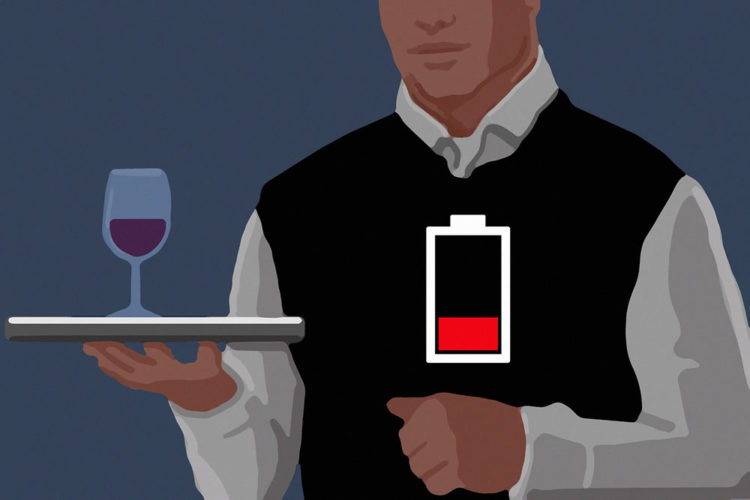 The restaurant employees have a very busy and exhausting working day. It will be great if you treat this with understanding.
The restaurant employees have a very busy and exhausting working day. It will be great if you treat this with understanding.
The waiter is not an unemployed actor
Unfortunately, the service industry is still viewed as unprofessional. As a means to an end for actors and part-time students. Customers know this and unfortunately use it. Although some employees devote their lives to this. At the highest level, great money can be made perfecting the art of service, but it takes years of practice. Appreciate that someone's career choice and respect what they do.
Don't make numerous changes to the dish
Obviously, the staff will take into account the nutritional requirements, but prefer that you order from the menu, rather than trying to change the already created dishes.
The chef and his team have spent weeks, even months, perfecting a particular dish. If you don't like something, do not order. By the time you replaced eggplant with carrots and potato gratin for French fries, you not only made yourself out to be a commoner, but also created a completely different dish. The flavors do not match, and the old ingredients no longer harmonize with each other. Unless, of course, you're at a diner that serves low-quality food.
Don't ask for more salt
Some restaurants prohibit salt and pepper, and we agree to some extent, as a worthy chef must season the dish properly. However, if you are obsessed with raising your blood pressure, then who are they to stand in your way? People's taste buds react differently to seasonings. If you don't see salt on the table, try the food first before asking for it.
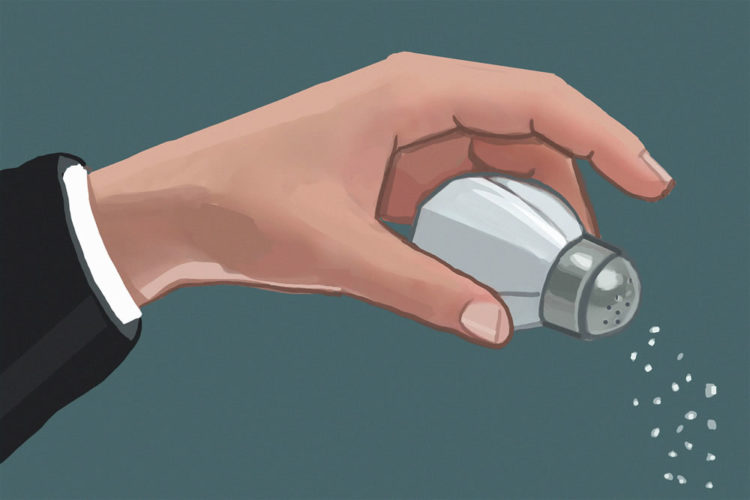 It is not without reason that chefs are in this position. They know better how much spices should be in a particular dish. Although the decision is of course yours
It is not without reason that chefs are in this position. They know better how much spices should be in a particular dish. Although the decision is of course yours
A little knowledge doesn't hurt
The best way to provide great service is to show your personality, demonstrate knowledge of the ingredients and, most importantly, smile. Also, believe what the waiter says. Clients often feel that they are being tricked.
If you know that a certain ingredient is of the season, or the region you are in is known for a certain type of food, let your waiter know. This will spark conversation about where the restaurant is getting the dishes that employees always want to talk about. If the kitchen staff is told that 'at the third table they know what they are talking about', chances are that the chef will take care of your plate.
Get out of your comfort zone
Employees love it when customers trust them in their food choices and are happy to try something different from what they usually choose. It's all too easy to stick with what's familiar when you go to dinner. But, the whole point of eating in a restaurant is to try food that you don't normally eat at home. We are not saying to break the rule book, but if something is a specialty of the restaurant, it is worth trying. Ask the waiter to guide you through the menu, explain each dish in detail and recommend a signature dish.
Look in your eyes
You are not Dustin Hoffman in Rain Man, so stop staring at your feet. Unless you're looking over the bartender's shoulder at the contents of his bar, make eye contact with the guy who's about to pour a drink or take an order.
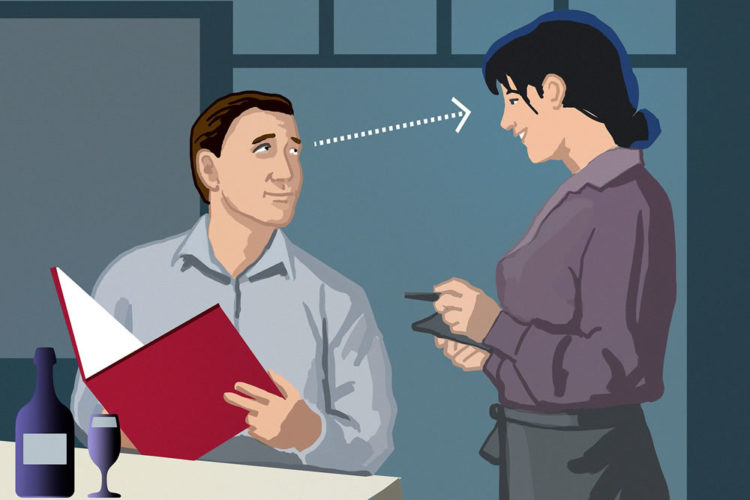 Make eye contact with the waiter. This gesture of friendliness will create a positive relationship with the employee.
Make eye contact with the waiter. This gesture of friendliness will create a positive relationship with the employee.
Don't stack your plates
Relax and unwind as soon as you finish eating. If you see that the waiter or waitress is struggling to get to the plate, then moving it closer is a good gesture. But in reality, it’s less troublesome for waiters to keep you talking while they clear the table. Take a sip of your drink and possibly nod in a friendly way.
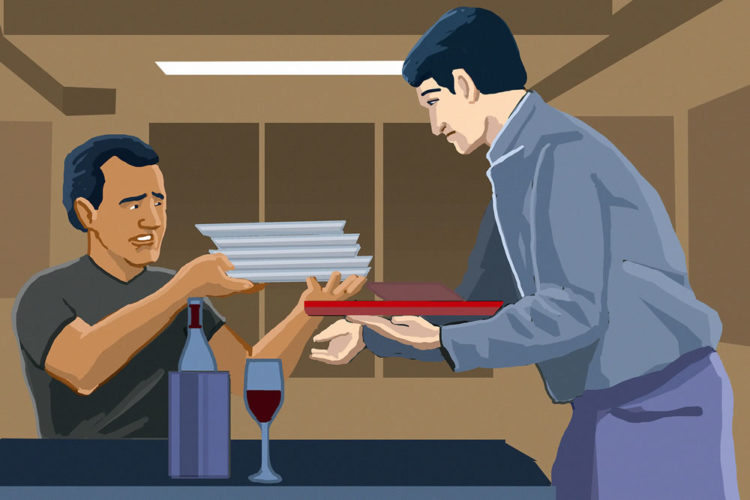 This is not a bad act, of course, but the consequences are not very helpful. Employees have a system for collecting dishes from the table, it is better not to violate it
This is not a bad act, of course, but the consequences are not very helpful. Employees have a system for collecting dishes from the table, it is better not to violate it
Let the guys do their work. You might think you are helping by folding the plates, but it messes up their system. Carrying several plates folded on your hand is much easier than lifting a stack.
Maintain Feedback
Whatever field you work in, it's nice to receive praise when you've done a good job. Whether it means complimenting the waiter for the service, or writing a note to the chef to tell him about something you liked. It will not go unnoticed. The chefs are ill-informed about the fate of the dishes. If you're feeling bold enough, ask the chef to leave a personal review of the food.
Don't delay the waiter
Splitting a bill can be painful, although it depends on how you do it. If you divide it equally between four people, then that's okay. If you divide a bottle of water depending on how many sips one has, then yes, it is definitely annoying. Especially when you expect the waiter to do the calculations for you.
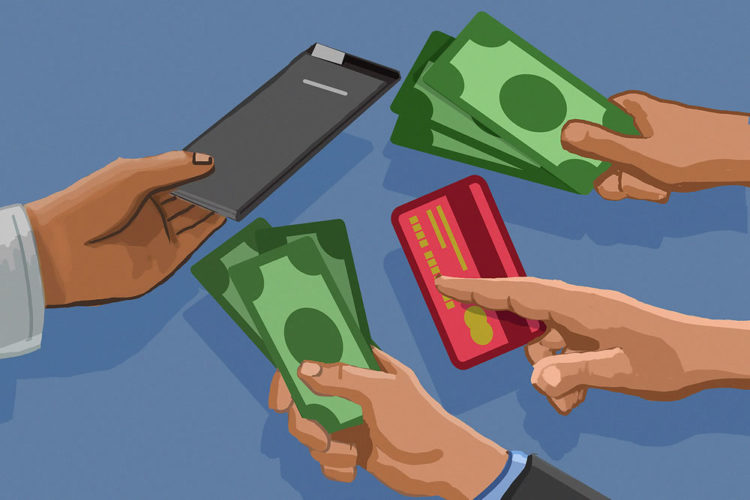 Understand who will pay the bill and how much before calling the waiter
Understand who will pay the bill and how much before calling the waiter
It's unlikely that a waiter has a degree in mathematics and won't be able to calculate what you owe for an eighth of a pizza and 2/3 of a French fries. Find out who is paying first before calling a restaurant employee to pay.
Tip
Tipping is always difficult, why can't there be hard and fast rules? Service workers are hoping for a tip. So if you were well served it would be good to thank the staff. Ten percent is interpreted as' Thank you. You did a good job '; 15 percent could be considered 'top tier service. I'll be back”; and 20 percent is interpreted as' You made my night. I would like you to bring me food and drink every day of the week.
Don't snap your fingers
Never snap your fingers to a waiter. You'd be surprised how common this is still. You need to understand how rude it is!
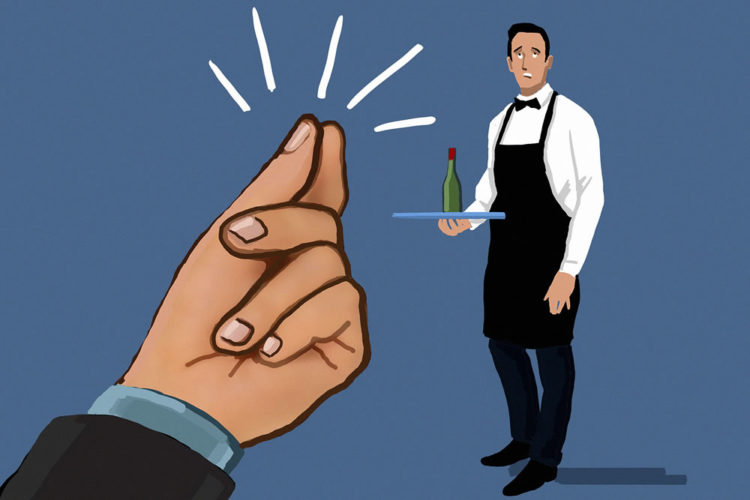 Don't snap your fingers to call the waiter to you. It's rude and unethical
Don't snap your fingers to call the waiter to you. It's rude and unethical
Finally
Conversation about restaurant etiquette seems like an odd, old-fashioned concept, much like landlines and Myspace. It's an old-fashioned word that conjures up images of sour-faced aristocrats taunting people for not holding fish knives correctly. However, broadly speaking, etiquette is still surprisingly relevant. Because we must not show ourselves as a laughing stock in public. Think about the information in this guide, which will help you gain the necessary knowledge and modern manners needed to go to any restaurant safely.

